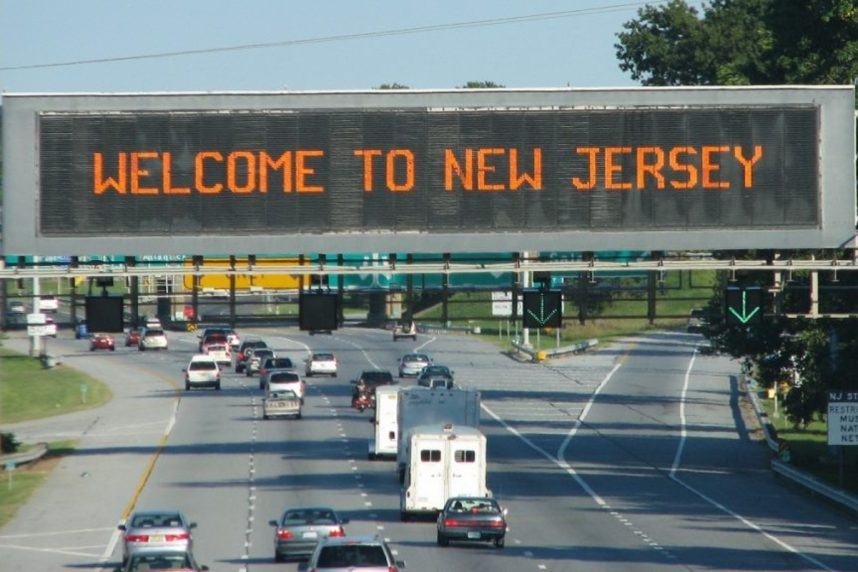New Jersey iGaming Tax Bill Introduced, Lawmaker Says State Deserves Bigger Cut
Posted on: March 27, 2024, 11:47h.
Last updated on: March 28, 2024, 12:33h.
New Jersey is one of only seven states that allows online casino slot machines and interactive table games to operate.

iGaming is big business in the Garden State, as online casino platforms last year generated a record $1.92 billion in gross gaming revenue (GGR). At least one lawmaker in Trenton, state Sen. John McKeon (D-Essex), thinks the state should be entitled to a bigger piece of the iGaming pie.
Along with elevating the iGaming tax, McKeon’s bill would increase the state’s share of revenue won online by oddsmakers. McKeon recently introduced Senate Bill 3064. The statute is short and simple with just one sentence.
“Increases tax on internet casino gaming and internet sports wagering to 30%,” the bill reads.
New Jersey is home to 30 iGaming platforms licensed by the state’s Division of Gaming Enforcement. The state additionally has 18 licensed online sportsbooks.
All of the online gaming outlets are tethered to a brick-and-mortar casino and share in the revenues through individual partnerships.
State Benefit
Michigan narrowly edged New Jersey last year to become the nation’s richest iGaming state.
In Michigan, the state allows its three commercial casinos in Detroit and federally recognized Native American tribes that have Class III gaming compacts with the state to run online gambling. In New Jersey, all iGaming and sports betting ops are run by commercial licensees.
GGR from iGaming in New Jersey is hit with a 15% tax. Online sports betting revenue is taxed at 13%.
Last year, New Jersey’s share of the online gaming win was approximately $288.5 million. Online oddsmakers shared $125.6 million. If McKeon gets his way, those numbers last year would have amounted to more than $577.1 million from iGaming and $289.7 million from online sports wagering.
The Atlantic City casino industry, which consists of nine casinos, immediately opposed McKeon’s bill. The casinos claim they already share a significant portion of the online gaming revenue with their third-party operators like DraftKings and FanDuel, and higher taxes would further eat into their bottom lines.
Since online gaming found favor amid the COVID-19 pandemic in 2020, New Jersey has received more than $888.8 million from iGaming and $362.44 million from online sportsbooks.
McKeon’s SB 3064 hasn’t yet been assigned to a Senate committee for initial review.
Taxes Already Too High
In 2021, the Casino Association of New Jersey, the trade group that represents the nine resorts in Atlantic City, successfully convinced state lawmakers to remove iGaming and online sports betting from the calculation used to determine how much property taxes the casinos pay. Casino officials argued that since those third-party operators have little or no physical presence in Atlantic City, the casinos shouldn’t have to pay property tax on the online money.
The tax isn’t a true property tax, but is instead calculated through the casinos’ payment-in-lieu-of-tax (PILOT) program. That is part of the state’s continued governance of Atlantic City that began in 2011.
The PILOT adjustment remains amid a legal challenge from Atlantic County contending that the calculation amendment violates a consent order. That mandate requires the county to receive 13.5% of the PILOT liability based on brick-and-mortar, iGaming, and retail and online sports betting revenue.
Related News Articles
New Jersey Online Casinos Report Record Monthly Win in November
New York iGaming Political Ad Launched, Campaign Backed by Sportsbooks
Most Popular
FTC: Casino Resort Fees Must Be Included in Upfront Hotel Rates
Genovese Capo Sentenced for Illegal Gambling on Long Island
NBA Referees Expose Sports Betting Abuse Following Steve Kerr Meltdown
UPDATE: Former Resorts World & MGM Grand Prez Loses Gaming License
Most Commented
-
UPDATE: Whiskey Pete’s Casino Near Las Vegas Closes
— December 20, 2024 — 32 Comments -
Caesars Virginia in Danville Now Accepting Hotel Room Reservations
— November 27, 2024 — 9 Comments -
UPDATE: Former Resorts World & MGM Grand Prez Loses Gaming License
— December 19, 2024 — 8 Comments -
FTC: Casino Resort Fees Must Be Included in Upfront Hotel Rates
— December 17, 2024 — 7 Comments
















No comments yet